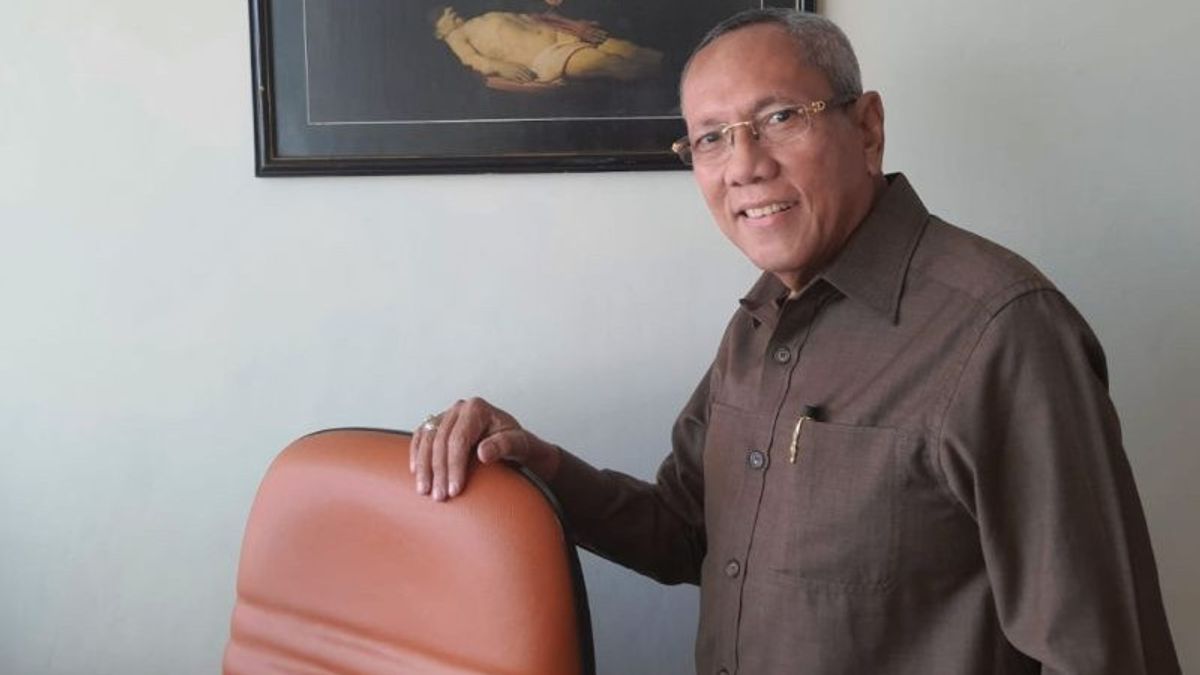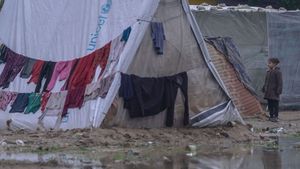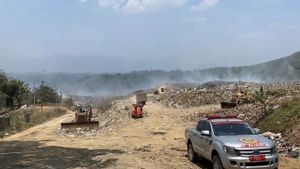JAKARTA - The World Health Organization (WHO) classifies polyo diseases that occur in Indonesia as Diseases Outbreak News (DONs) or disease outbreaks that need to be watched out for, because they have circulated in the form of local transmission in the community.
In an official statement reported in Jakarta, WHO included the title Circulating Vaccine-Derived Poliovirus Type 2 (cVDPV2) Indonesia for Extraordinary Incidents (KLB) of Polio cases in Indonesia which was published as of December 19, 2022.
The statement also explained in detail the Polio case that occurred in Pidie Regency, Aceh, along with a series of actions that have been taken by the Indonesian government.
In early November 2022, the Indonesian Ministry of Health announced the findings of a Polio case in Pidie Regency.
Subsequently, epidemiological tracing efforts were carried out around the patient's residence and another similar case was found that infected three children under five, but without symptoms, suddenly paralyzed.
The Ministry of Health has tried to reduce the rate of Polio cases through the Polio vaccination program, which targets around 1.2 million people under the age of 12. They are spread across 23 districts/cities of Aceh Province.
Former Director of WHO Southeast Asia Tjandra Yoga Aditama explained that the two reasons that caused Polio in Aceh to have circulated and spread in the community.
First, because there were several samples of cases examined, it turned out to be genetically related to each other. The second reason, reports of sequencing laboratory examinations from Bio Farma showed changes to 25 organic nucloetide compounds in patients with cases of depletion (acute flaccid paralysis/AFP), as well as changes to nucleotides 25 and 26 in asymptomatic or asymptomatic cases.
"The situation is stated to have circulated in the community, that's why there is an alphabet c in front of VDVP2, namely the virus that causes this KLB," he said as quoted by Antara, Wednesday, January 21.
Tjandra, who is now the Director of Postgraduate at YARSI University, said that there are at least two impacts that have arisen for countries with the status of cVDPV2 importation cases that have circulated in the form of local transmission.
First, it is necessary to declare the KLB as a national health problem. Second, it is also recommended to local residents and foreigners who stay for a long period of time to get the Injection Polio Vaccine (IPV) at least in four weeks to 12 months before traveling abroad.
"These two things are WHO recommendations based on recommendations in a statement (Public Health Emergency of International Concern/PHEIC)," added Tjandra.
"Both of these things certainly have a very broad impact if it will be implemented, because from now on, the best solution must be sought. At least, international health diplomacy is needed," he said.
The former Director General (Dirjen) of Disease Control and the former Head of Balitbangkes of the Indonesian Ministry of Health said the provision had an impact on international travelers. One of them is Hajj and Umrah activities to Saudi Arabia.
"Not to mention if you look at the announcement of the Saudi Arabian Government for 2022, where pilgrims are cheap and cheap, if according to Saudi government regulations this year, then pilgrims from countries with cVDPV2 need to get an IPV or at least an OPV. At that time, of course, Indonesia was not in the table, if Saudi Arabia took the DONs data yesterday, then of course the problem for our congregation, which hopefully did not happen," he said.
Tjandra reminded the government to immediately take anticipatory steps against potential losses for the community as a result of WHO's move to publish the Indonesian Polio KLB within the DONs.
"Various possible impacts need to be anticipated from these days, and harmful potentials need to be prevented so that they do not occur. This means that epidemiological handling in the field needs to work together with international health diplomacy," he said.
The English, Chinese, Japanese, Arabic, and French versions are automatically generated by the AI. So there may still be inaccuracies in translating, please always see Indonesian as our main language. (system supported by DigitalSiber.id)













